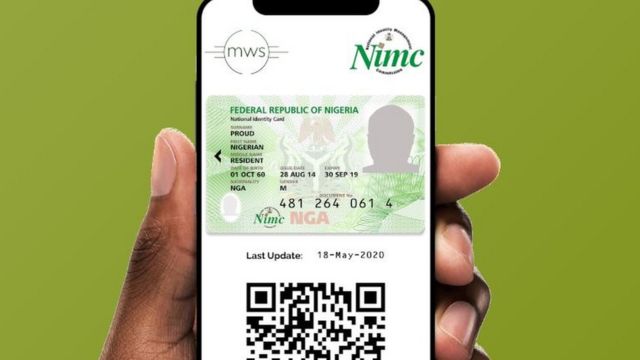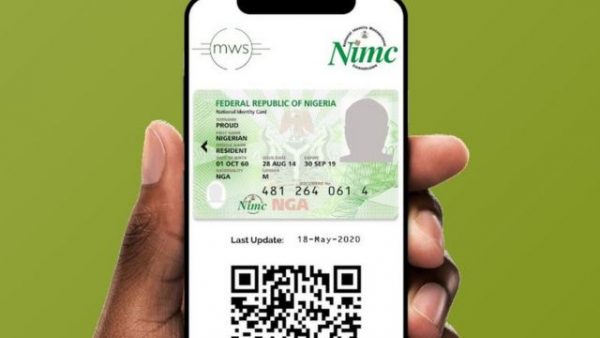After the important 11-digit NIN has been obtained by an individual, a card comes next as an additional token. The National Electronic Identity Card (e-ID card) is a chip-based card with multiple functions. As mentioned earlier, the card is a token given upon successful enrolment or registration into the National Identity System.
This article will furnish you with basic information about the e-ID Card and the first five active applets on the card that are its fundamental functions.
Read more about NIN
Basic Information
Persons Eligible for the National e-ID Card
Unlike the National Identification Number (NIN) which is assignable to all Nigerians and Legal Residents without any age restrictions, the National e-ID Card can only be issued to Nigerians registered into the National Identity System and Legal Residents who have attained the age of 16 years and above.
It is important to note that the 11-digit National Identification Number (NIN) is not the same thing as the National e-ID Card which is a physical token.
The NIN can be used on its own for digital identity verification without the e-ID card.
The e-ID card cannot be used on its own for digital identity verification without the NIN first being stored within its chip.
The number printed on the e-ID card is not the NIN but the PAN (Primary Account Number) used for accessing the card’s payment feature once activated.
Functions of the New National e-ID Card
The e-ID card has provisions for 13 applets out of which five (5) is activated at the point of collecting the card.
The five (5) active applets are:
- Electronic Identity Information (e-ID)
- EMV Payment
- Verification – Match-on-Card
- Security – Electronic Public Key Infrastructure (ePKI)
- Travel – International Civil Aviation Organization (ICAO)
The remaining eight (8) applets will be implemented in subsequent phases. These are:
- e-Health Application
- e-Pension Application
- e-Voting Application
- e-Taxation Application
- e-Drivers’ License Application
- e-Transport Application
- e-SIM Application
- e-Insurance Application
The applets are designed to facilitate interactions of individuals with the Government and with Institutions using the National e-ID Card to be able to assess a wide range of services. The card is smart and trendy with relevant security features to forestall fraudulent activities.
Facts about the First Five Active Applets of the e-ID Card
Electronic Identity (e-ID)
This is the simplest but major function of the National e-ID Card as it contains key information of the applicant or Cardholder recorded in the Database. Information such as the National Identification Number (NIN), the Cardholder/applicant’s address, name and other details are stored here and securely locked away and can ONLY be read by authorised terminals or Card Acceptance Devices (CADs).
An agency will require a special reader approved by NIMC in order to read the contents of the Card in order to ensure that confidential information not displayed on the face of the card is safe.
Sign up to the Connect Nigeria daily newsletter
This unique function is key to validating the applicant’s National Identification Number (NIN) and offers the National e-ID as a strong tool for institutions offering services to their customers like the “Know Your Customer” (KYC) tool for banks and other financial institutions.
Payment – Europay MasterCard & Visa (EMV)
This payment Function enables the National e-ID Card to be used as a tool for making payments for goods and services in any part of the world. A great number of Nigerians do not have access to financial services, but with the new e-ID Card, money can be transferred, paid into or loaded into an individual’s e-ID Card.
All that the cardholder needs to do is to visit one of the participating banks (such as UBA) and load money on the card or have someone transfer money to the card using any of the available payment platforms/options. For example (from a bank account to the Card, Quickteller transfer, POS terminals, ATM) etc.
The card can also be used to pay for goods and services such as utility bills like DSTV, GOTV, Startimes, flight tickets, Water bill, PHCN and so on and in Automated Teller Machines (ATMs) all over the world where any of the payment processors (such as Mastercard) is displayed.
Match-on-Card (MoC)
The card has your 10 fingerprints taken at the point of registration into the National Identity Database safely stored away on it. No unauthorised person can access them. The Match-on Card (MoC) is the most secure technology to authenticate a person.
A secure terminal or a Card Acceptance Device (CAD) is used to match a specific fingerprint against that locked away on the National e-ID Card. Too many attempts and the applet is blocked for security reasons. That way, an agency or authorised person can be sure that the person presenting the Card is the true owner. It is no different from what is currently done with the International Passport.
Electronic Public Key Infrastructure (ePKI) – Security
This function facilitates secure communication between persons, users and devices. The ePKI, as it is called, helps in building trust for transactions as well as ensuring the confidentiality of business transactions such as e-commerce, internet banking and business emails. With the ePKI function on the National e-ID Card, an electronic signature can be duly applied to sign binding contracts, applications, documents, online identification and at vending/ATM machines.
International Civil Aviation Organisation (ICAO) – Travel
The National e-ID Card is also a travel document and conforms to such standards as the ICAO just like the International Passport. This function on the Card provides future functionality for anyone who may wish to embark on cross border migration such as regional travel within West Africa and or other consenting Countries where a visa is not required.
Source:
NIMC
Featured image source: BBC
Got a suggestion? Contact us: [email protected]


